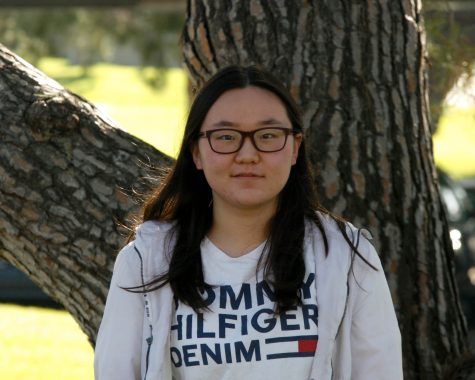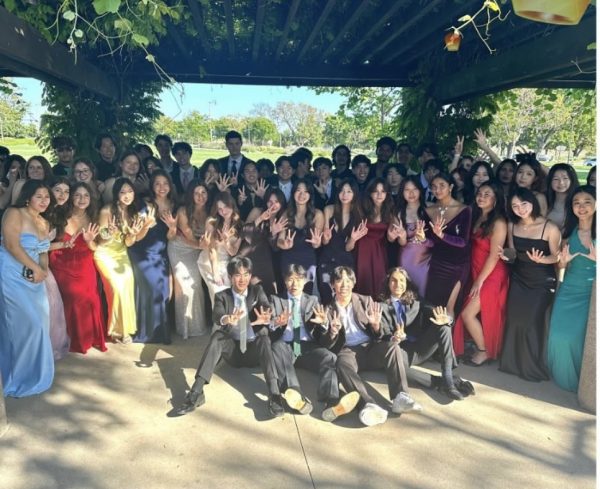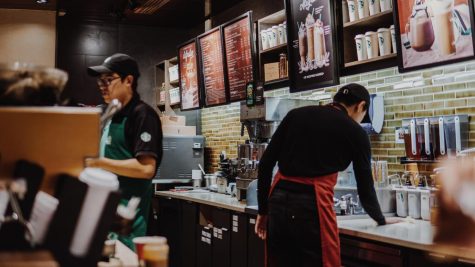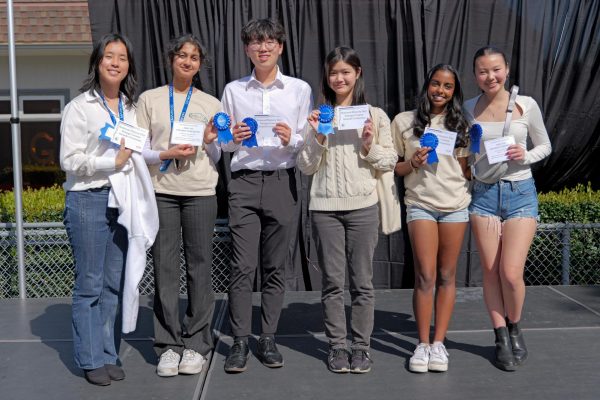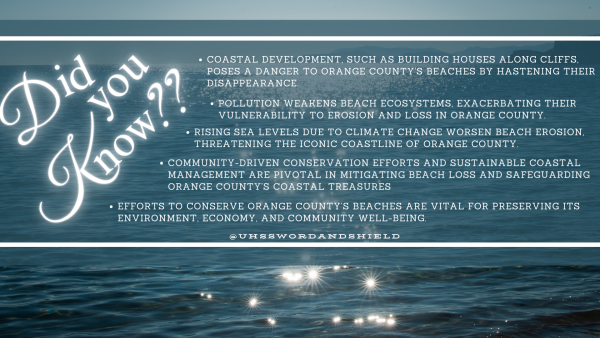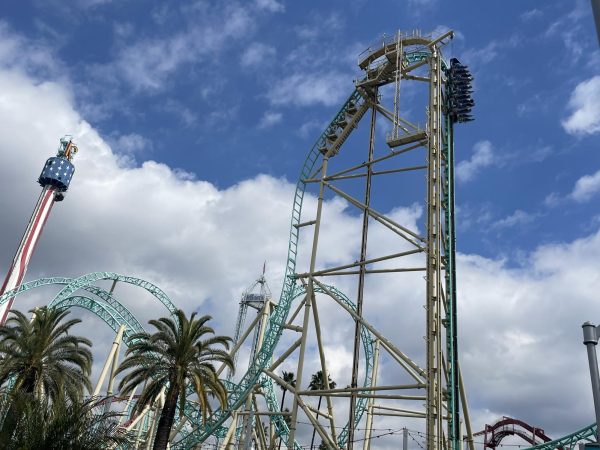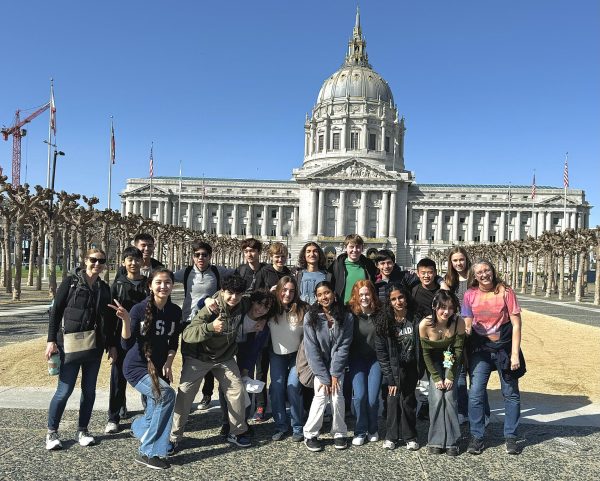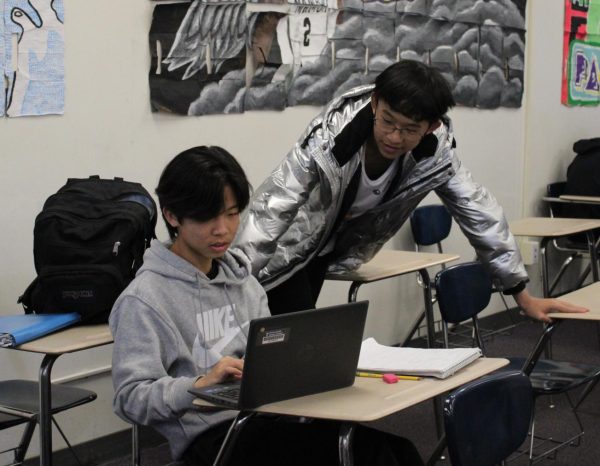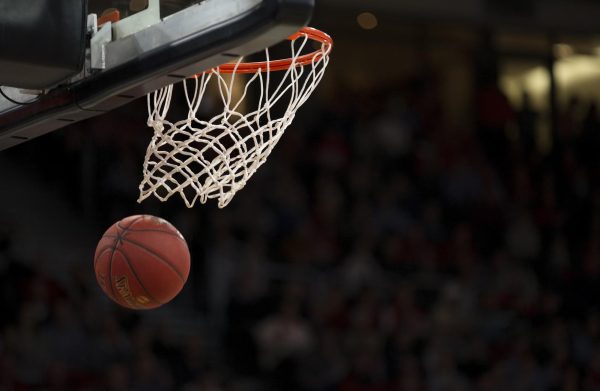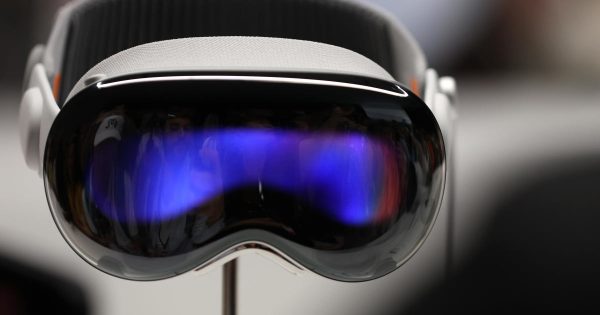UHS Students Shine Bright at OC Science & Engineering Fair
UHS students won a number of awards at OCSEF which was held virtually in April.

May 18, 2021
By HEIDI JIN
Staff Writer
UHS students won a number of awards in the 66th Annual Orange County Science and Engineering Fair (OCSEF) which was held virtually in April.
UHS students accounted for half of the 2021 Regeneron ISEF finalists proceeding from OCSEF. Sophomore Aniyah Shen, junior Haedam Im, and senior Andrei Mandelshtam qualified to compete in the international fair.
“It is an incredible honor that many other students are equally qualified for,” Shen said. “I expect myself to represent OCSEF and my fellow delegates with grace and poise. I hope I make those who have supported me this entire time proud.”
UHS students also won awards in OCSEF’s categories, which spans disciplines ranging from behavioral sciences to computational modeling. Im, Mandelshtam, Dylan Soong, and Shen won first place in the categories of Physics and Astronomy, Mathematics and Software, and Environmental Science/ Environmental Engineering respectively. Other category awards were won by junior Pranav Moudgalya, freshman Alex Liu, freshman Daichi Hiraoka, and freshman Raghav Mehrotra-Venkat.
A few UHS students also won several of the OCSEF Special Awards, a recognition granted by various commercial and academic sponsors of the competition. Senior Andrew Collins won the senior division of the American Association for Clinical Chemistry (AACC), Southern California Section. Shen won the senior division of the California Water Environment Association (CWEA), the Orange County Sanitation District, and the Orange County Water District.
Similar to the 2020 science fair, all 2021 district, county, state, and international fairs were or will be held online with a virtual judging process and virtual award ceremonies.
“Instead of a physical backboard presentation, we had the option to make a digital slide deck,” Collins said. “It was much easier in my opinion.”
Although the virtual format brought its own unique benefits, some competitors preferred the physical format of previous years.
“I definitely prefer to present my project to judges in-person, just because there is an element of human connection and spontaneity that simply cannot be replicated on video calls,” Shen said. “There is also more space and freedom to share your materials (lab notebook, experiment tools), and it challenges you to think on your toes and communicate clearly and concisely.”
Overall, most students appreciate the innovative combination of a virtual and an in-person fair.
“Although all the interview processes were done virtually, I am sure that it was an exciting and unique experience for all students who participated this year,” Im said.
The COVID-19 pandemic not only affected the format of the science fair, but also inspired some students to choose the topics of their projects.
Due to mandatory quarantines, some students extended the time they spent in their homes and neighborhoods. Shen took walks around her local community and discovered issues surrounding water use efficiency, which she later solved with her project.
“I began noticing on my daily walks to the community park that there would be water running down the sidewalks every morning from overnight watering, and this made me realize how prevalent of an issue overwatering is,” Shen said. “This was actually my first year exploring the area of water science.”
Upon noticing the severity of the COVID-19 pandemic, students like Collins modified their initial idea and centered their projects around COVID-19. Through his project, Collins developed a lung-on-a-chip system that tests COVID-19 treatments with high efficiency.
“My grandfather in India recently died from pneumonia, and I was already interested in making body-on-a-chip devices, so I decided to specialize in lung-on-a-chip systems,” Collins said. “It initially didn’t focus on COVID-19, but its applications overlapped with COVID-19 treatment testing a lot so I adapted it to fit the current circumstances.”
Despite the unique circumstances that the pandemic presented, some students stayed true to their scientific passions and pursued research projects in areas unrelated to COVID-19.
“Surprisingly, COVID didn’t affect my project much,” Mandelshtam said. “Since I work in pure math, all my project involved was pencil and paper, and [virtually] meeting with my mentor.”
Beyond just altering the topic of student’s research, the pandemic also forced some researchers to reconsider the materials and methods they would utilize in their projects.
Before the COVID-19 pandemic, Shen was working on a microscopy-oriented biochemistry project in a laboratory. However, the laboratory’s closure compelled her to remodel her project so it could be completed in a home setting.
“I ended up developing the different components of my project (homemade imaging box, paper chromatography) that I eventually applied to a completely different project,” Shen said. “I am very grateful for this year’s experience because I think I really had the time and headspace to learn the principles behind my tools in-depth and to struggle with the research process.”
Other students utilized a wealth of resources available online and in school. UHS faculty offered assistance to students as well.
“During the pandemic, many students including me had limitations in the activities and projects that we’re able to do,” Im said. “I used various books, online tutorials, computer programs, and Mr. Smay gave me advice and help without hesitation.”
Some students also seeked help from extracurricular resources such as programs offered by nonprofit organizations that focus on nurturing students’ development in STEM-related fields.
“Last year, I applied to a summer science program called the Research Science Institute (to which I encourage all rising juniors to apply), and expressed interest in algebraic number theory,” Mandelshtam said. “Apart from some complicated techniques that my mentor suggested that I try, I did everything in my project entirely on my own.”
A few students who compromised their projects due to laboratory closures are planning to further perfect their projects after the state lifts its COVID-19 restrictions.
“I will definitely further my interest in this area,” Collins said. “I already have plans on how to improve my project by testing it with real lung cells in an official laboratory once COVID restrictions have lowered.”
Most participants of OCSEF enjoyed this year’s fair and recognized the efforts that OCSEF coordinators, judges, and the UHS faculty devoted to this event.
“This year’s science fair was obviously different in that it was done virtually, but it was done just as well,” Mandelshtam said. “Apart from a few students showing up late to interviews and as a result causing delays for everyone else, everything passed smoothly and the judges were as nice and interested in my project as ever.”


